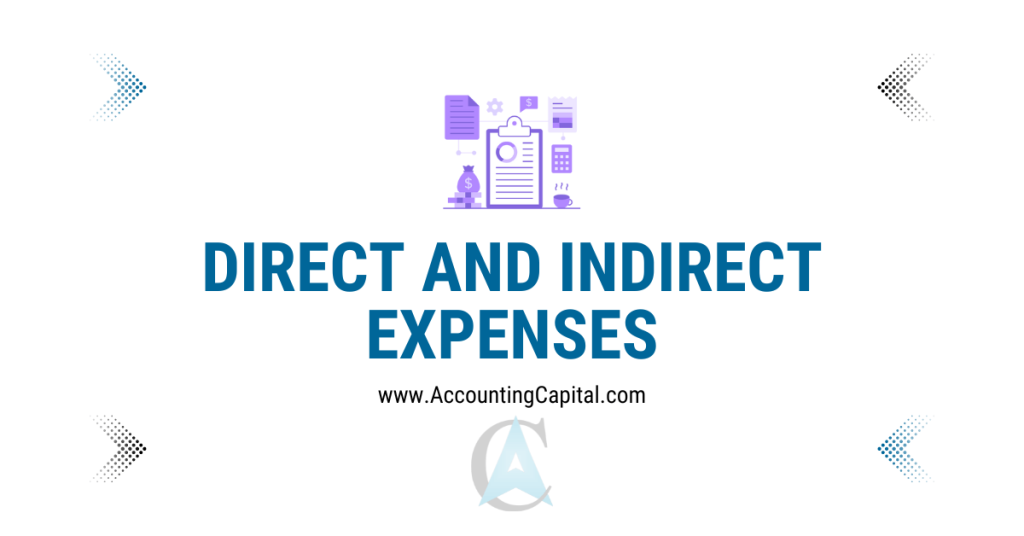Blog
Financial Accounting VS Cost Accounting The difference between financial accounting and cost accounting is very important to understand as both of them serve different purpose and audience. A person from the management may not find certain information relevant, and at the same time, a cost accountant can’t work without this information. A creditor and a cost accountant […]
Credit Note When a customer returns goods purchased on credit he/she also expects some form of confirmation from the seller along with the cancellation of related dues. A credit note is a document sent by a seller to the buyer as a notification to acknowledge that the goods have been registered as “returned” (return inwards) […]
Days Payable Outstanding (DPO) Days payable outstanding or DPO is the average number of days that a company takes to pay its outstanding suppliers after a credit purchase has been recorded. It is used for the estimation of an average payment period and helps to determine the efficiency with which the company’s accounts payable are being managed. Days […]
Capital In its simplest form, capital means the funds brought in to start a business by the owner(s) of a company. It is an investment by the proprietor(s) or partner(s) in the business. Bringing equity into a business can mean money or assets as well. It is business’ liability towards the owner(s) also referred to […]
Service Center A service center is an organizational unit which provides services to other departments within an organization. Its main task is to serve other departments within the organization, such as other service centers, cost centers and profit centers. A service center can be further divided into sub service centers. Example Technology department, Real […]
Journal Entry for Profit on Sale of Fixed Assets Nowadays, businesses sell their assets as part of strategic decision-making. Sale of an asset may be done to retire an asset, funds generation, etc. Such a sale may result in a profit or loss for the business. In the case of profits, a journal entry for […]
Discount Allowed Discounts are very common in today’s business world, they are generally provided in lieu of some consideration which can range from timely payments to market competition. While posting a journal entry for discount allowed “Discount Allowed Account” is debited. Discount allowed acts as an additional expense for the business and it is shown on the debit side […]
Overview Depreciation Journal Entry When charged directly to the asset When provision for depreciation or accumulated depreciation is maintained Example & Steps Journal Entry for Depreciation on Furniture Journal Entry for Depreciation on Machinery Journal Entry for Depreciation on Equipment Journal Entry for Depreciation on Building Journal Entry for Depreciation on Land Quiz Overview […]
Journal Entry for Income Received in Advance Also known as unearned income, it is income which is received in advance, however, the related benefits are yet to be provided. It belongs to a future accounting period and is still to be earned. Journal entry for income received in advance recognizes the accounting rule of “Credit […]
Journal Entry for Accrued Income It is income earned during a particular accounting period but not received until the end of that period. It is treated as an asset for the business. Journal entry for accrued income recognizes the accounting rule of “Debit the increase in assets” (modern rules of accounting). Examples of accrued income – Interest on investment earned but […]
Journal Entry for Prepaid Expenses Prepaid expenses are those expenses which are paid in advance for a benefit yet to be received. The perks of such expenses are yet to be utilised in a future period. Below is the journal entry for prepaid expenses; According to the three types of accounts in accounting “prepaid expense” is a […]
There are expenses that are due but have not been paid as of the end of the current accounting period. Such expenses are called outstanding expenses. The benefits of such expenses have been consumed although due to some reason they are not paid. We’ll explain how to pass a journal entry for outstanding expenses in […]
Debit Note Vs Credit Note Debit and credit notes are an important part of today’s business culture as corporations have grown large and so have their credit sales and purchases. Accounts payable management and accounts receivable management including dealing with credit and debit notes on a daily basis. Therefore, knowing the difference between a debit […]
Income Statement vs Balance Sheet An Income statement and a Balance sheet are two significant financial statements in accounting, and both statements have their own individual purpose and identity. They are important, yet very different. Below, you will find few points showing the difference between the income statement and balance sheet. Income Statement (Profit […]
Fixed Assets Vs Current Assets Basis Fixed Assets Current Assets Definition Fixed assets are assets that last for a long time and are acquired for continuous use by an entity. They are resources held for a short period of time and are mainly used for trading purposes. Timeframe The assets of this type are held […]
Balance Sheet Vs Trial Balance Balance Sheet 1. It is a statement that shows a detailed listing of assets, liabilities, and capital demonstrating the financial condition of a company on a given date. 2. The purpose of preparing a balance sheet is to show the financial position of a business. 3. A balance sheet is mandatory to […]
Journal vs Ledger During the accounting cycle, there are two important steps to be followed; recording journal entries & preparing ledger accounts. They are related, however, there is a difference between journal and ledger which can be summarized as follows; Journal 1. Journal is a book of accounting where daily records of business transactions […]
Trade Discount vs Cash Discount Discounts play an important role in business transactions. They have has been part of business transactions since the beginning of time. Buyers offer discounts and sellers receive it, either implicitly or explicitly. The purpose of this article is to explain the difference between trade discount and cash discount in detail. […]
Prepare Trial Balance from Ledger Balances Preparing a trial balance from ledger balances is the next step of posting and balancing ledger accounts. The trial balance is a statement of debit and credit balances that are extracted from ledger accounts on a specific date. The trial balance is prepared with two different techniques: Total Method and […]
Charging Depreciation on Land If you’re an accounting student or executive you might have been often asked: “Why is depreciation not charged on land?”. The reason why depreciation is not charged on land is that the useful life of land can’t be found. A necessity for an asset to be depreciated is that it needs to […]
Calculation of Depreciation Rate % The reduction in value of an asset due to normal usage, wear and tear, new technology or unfavourable market conditions is called depreciation. Assets such as plant and machinery, buildings, vehicles and other assets which are expected to last more than one year but not for infinity are subject to depreciation. Formula […]
Return Inwards Return inwards are goods returned to a business by its customer(s). They are goods which were once sold to external third parties, however, because of being unsatisfactory, they were returned by the customer. They are also called “Sales Returns”. Inward returns reduce the total accounts receivable for the business. It is a sales […]
Meaning Days sales outstanding or DSO is also known as days receivables, it measures the average number of days that a company takes to collect the payment after a credit sale has been recorded. It is used for the estimation of the average collection period and helps to determine the efficiency with which the company’s […]
Journal Entry for Goods Given as Charity or Distributed as Free Samples Charity generally refers to the voluntary giving of help, typically in the form of money or goods to those in need. Goods given as free samples are however a way of advertising. Both acts when performed by a company are required to be recorded in […]
Direct Expenses (Meaning & Definition) Examples Direct Expenses List (with PDF) Are Direct Expenses Operating Expenses? Direct Expenses in Trading Account Direct Expenses in Service Industry Indirect Expenses (Meaning & Definition) Examples Indirect Expenses List (with PDF) Are Indirect Expenses and Overheads the same? Indirect Expenses in Final Accounts Is Salary a Direct or Indirect […]



